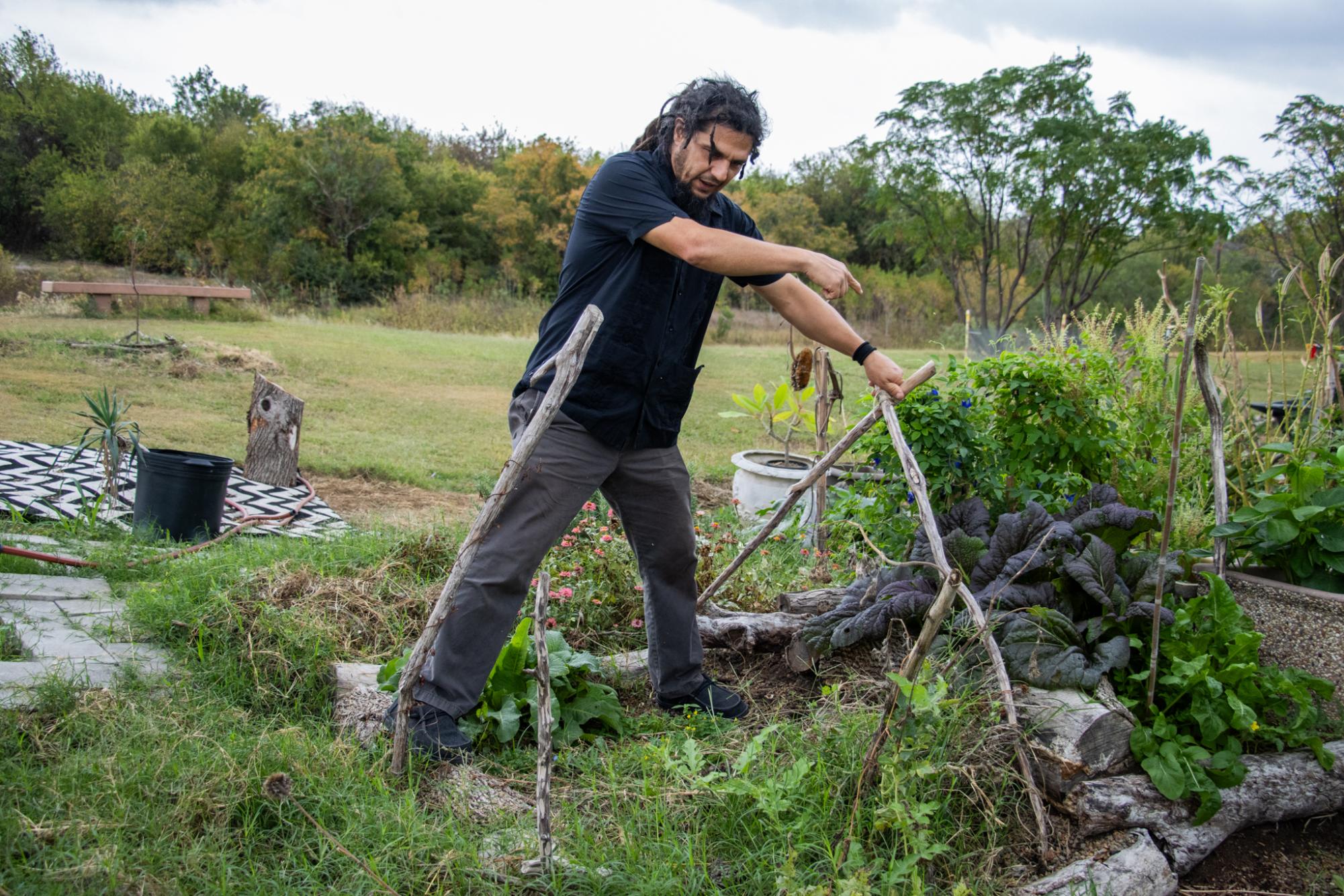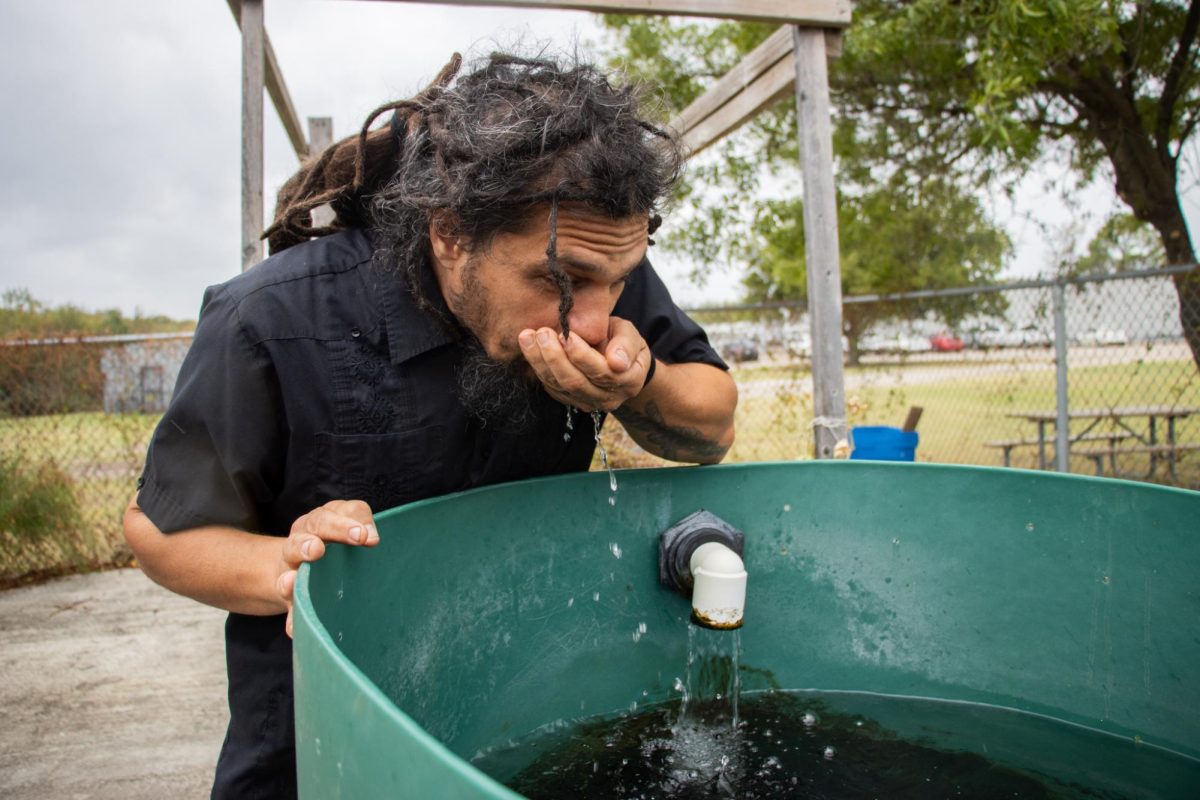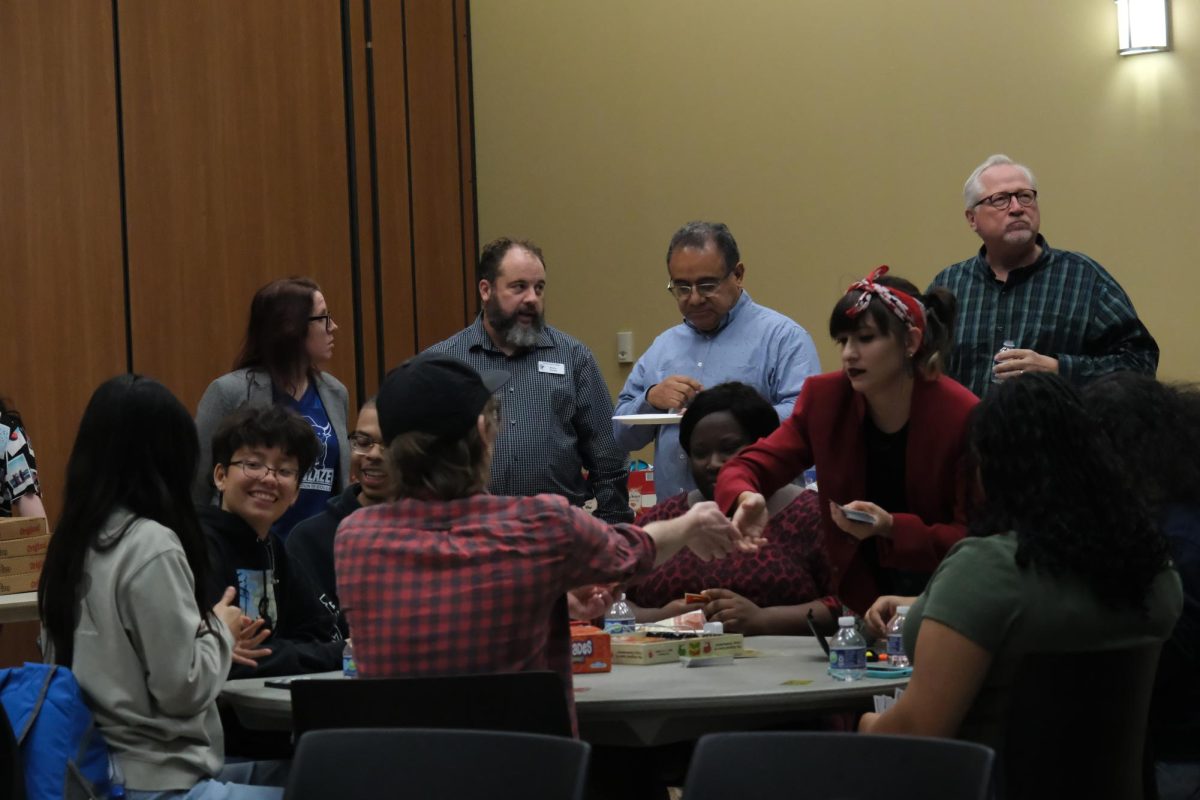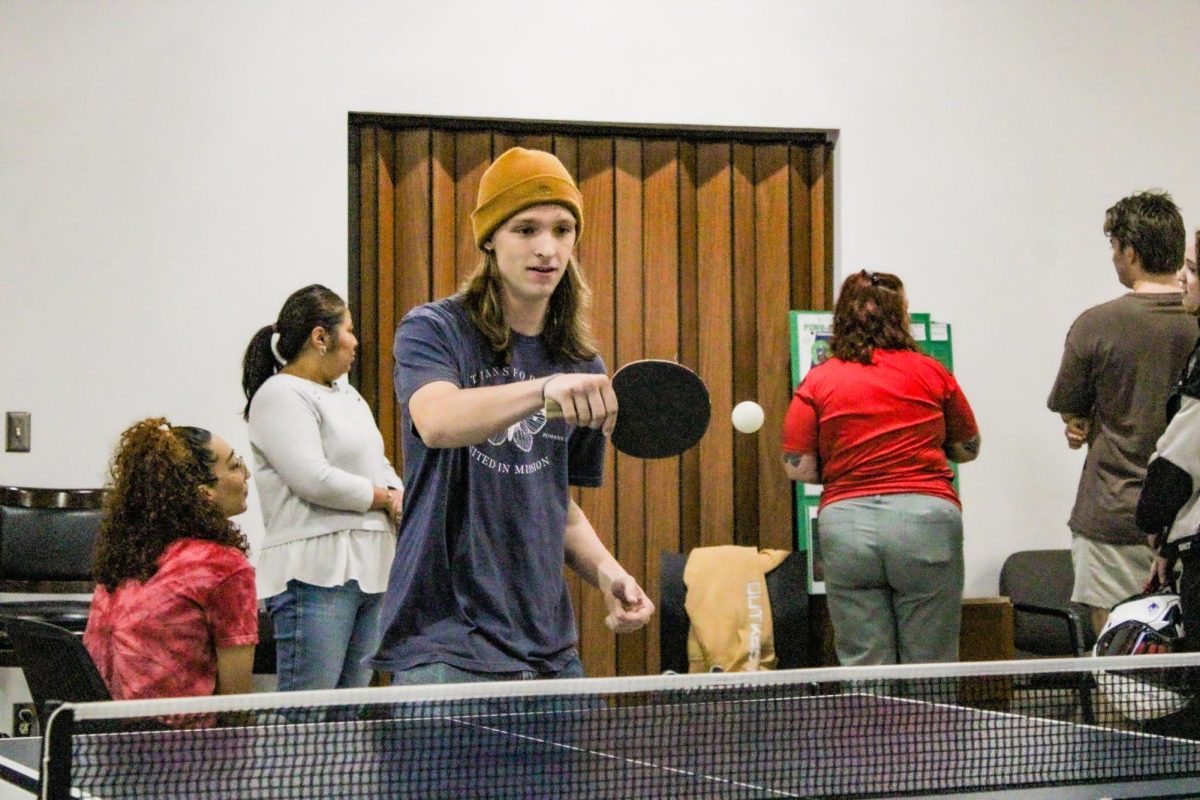It was a muggy Monday morning with tornado warnings broadcasted that Bradley Borougerdi wandered meticulously through the garden on SE Campus. Even as the rain began trickling onto his face, he continued tending the complex conservatory he’d handcrafted.
If he isn’t in the garden, Borougerdi can be found in his office, where the walls are hidden behind shelves overflowing with books. He is a history professor at SE and oversees the garden with the help of student volunteers and employees.
“We have a small aquaponics system in there now,” Borougerdi said. “We have a composting station where we’ve been bringing organic matter from all over the Metroplex and taking it to that location to make our own soil and heal the soil.”
Borougerdi’s motivation to teach the community gardening methods was influenced by a name he found on a pillar. After being awarded a sabbatical development leave, he went on a year trip across the U.S. to conduct research from different archives and national parks.
His journey ended in Montgomery, Alabama where he visited the National Memorial of Peace. It was the first memorial constructed in the U.S. dedicated to the victims of racial terror after the Civil War. The six-acre memorial is covered with steel monuments engraved with the names of those who were lynched.
“I saw a pillar and it said ‘Fred Rouse, Fort Worth, 1921,’ and that kind of shocked me,” Borougerdi said. “I was born in Fort Worth. I’ve been teaching about racial terror, violence my whole life, and I didn’t know that this happened in the city I was born in.”
The disturbance followed him home and powered him to establish the Tarrant County Coalition for Peace and Justice. His organization found the plot of land that Mr. Fred Rouse was lynched on and discovered it was for sale, so they bought it in 2019.
During this time, 28-year-old Atatiana Jefferson was fatally shot by a Fort Worth police officer while playing video games with her nephew inside of her home. Borougerdi went out to support his community after the tragedy, which is where he met Patrice Jones, who developed the Southside Community Gardens.
Jones’ organization builds garden plots in people’s homes who live in zip code 76104. This area has the lowest life expectancy in Texas by a decade, and there are no grocery stores anywhere. Borougerdi began volunteering for Jones shortly after meeting, and it was this sequence of events that stimulated his incentive.
“It kind of just started coming together for me, like this idea of the soil and the land, and the importance of taking care of the soil and taking care of the land,” Borougerdi said. “What if we can combine…the studying of history, with taking care of the land?”
Borougerdi and the Tarrant County Coalition proceeded with a mission to heal the soil where Rouse was murdered. They dug a massive hole on the plot and buried hackberry logs inside, because it was a hackberry tree upon which Rouse was lynched. All the soil removed was placed into jars to be taken home and composted.
“The idea was by composting [the soil], it heals,” Borougerdi said. “Then, when the memorial is built, bring it back. Bring some soil back and put it back into that plot.”
A jar of soil was also sent to the National Memorial of Peace, where it still sits today next to Fred Rouse’s pillar. Since then, Borougerdi has devoted his time to educating the community on how to garden.
“The first time I ever saw a child look at a tomato growing in the dirt for the first time in their life was just very powerful,” Borougerdi said.
What started in 2015 as a small-wooden gardening box for students has now become a massive-thriving plot of land with an array of plants. An aquaponics system was installed in 2017 that pumps water from a tank raising fish into a bed of rocks home to basil, arugula, peppers and more.
“This stuff is so clean that you can drink it, and nothing happens,” Borougerdi said as he took a handful of water from the fish tank and drank it.
His daily routine begins at 6:30 a.m. when he takes his shoes off to walk through the vast greenery. The time spent in the gardens, he said, is therapeutic and vital to his well-being. While teaching how to garden is important, what gardening has taught him changed his life.
“You’re planning, your goal oriented, you’re looking at things, you’re watching them grow,” Borougerdi said. “You see how long it takes for them to grow and how much care they need. And you can kind of think about how that relates to life really well. And can kind of help you work through things.”
Marco Bustamente has worked alongside Borougerdi in SE’s Garden for a little over a year now. He is studying to be a food scientist, so when he heard about the garden while taking Borougerdi’s American History class, he immediately joined.
Bustamente said Borougerdi is a mentor and a friend. They spend a lot of time together gardening, and Bustamente said the hours of hard work accompanied by Borougerdi has instilled lifelong lessons into him.
I’ve learned…in gardening the difference between observation and subjective thinking…I had to explore, to sit and watch and look and observe,” Bustamente said. “Dr. Bradley is letting me have the freedom to learn, to make mistakes out there.”
He began to uncontrollably laugh when beginning to tell a story about one awful mistake he made while managing the aquaponics’ water pump.
“I went to go get a coke. I thought I had time, and boy, I caused a big flood in the garden and poor [Borougerdi] had to dig a trench right before class,” Bustamente said. “And you know he got muddy, probably went into his class as dirty as all get out.”
His unintentional flash flood was a distress in the moment, but he said Borougerdi was patient. After the incident, they gathered materials and formed a drainage pipe to run through the trench dug up, creating a faux creek through the garden.
“It was a disaster that worked out great. It’s just funny how that works out in the garden,” Bustamente said. “When you see stuff out there, you’d probably think it’s all helter-skelter, but there is a method to his madness.”
Zain Alghazali, a new employee, said he has found working in the gardens to be peaceful.
“Everything about the garden, the fish…I like being there and doing this job,” Alghazali said.
At the beginning of November, there were enormous watermelons still growing on vines and strawberries beginning to sprout, even though their season ended weeks ago. An old TCC information booth, that used to sit at the front of SE Campus, is being reconstructed into a greenhouse. Mounds of dirt, soil, wood, coffee grounds and leaves are left in the sun to compost for next year’s season.
“Those are all parts of Dr. Borougerdi’s technique,” said Bustamente. “His work, it is good work, for the body and the soul. He is brilliant and has helped me many in ways that I probably have never told him before.”














